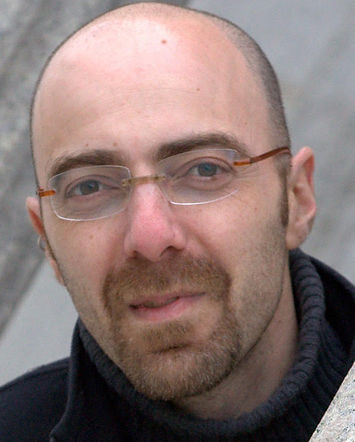#ISNR25thConference
Our Keynote & Invited Speakers
Take a look at our confirmed speakers!

Martin Teicher, MD, PhD
Director of the Developmental Biopsychiatry Research Program at McLean Hospital since 1988. Director of the former Developmental Psychopharmacology Laboratory (now the Laboratory of Developmental Neuropharmacology) and is currently an associate professor of psychiatry at Harvard Medical School.
Dr. Teicher is a member of the editorial board of the Journal of Child and Adolescent Psychopharmacology, Current Pediatric Reviews, and Current Psychosomatic Medicine. He is a member of the Scientific Advisory Council of the Juvenile Bipolar Research Foundation, and has been part of Harvard University's Brain Development Working Group. He has served on or chaired numerous review committees for the National Institute of Health, published more than 150 articles, and has received numerous honors.
Title- Impact of Childhood Maltreatment on Brain Development and the Critical Importance of Distinguishing Between Maltreated and Non-Maltreated Diagnostic Subtypes
Description:
Some of the most challenging clients have histories of maltreatment and compelling evidence has emerged regarding the neurobiological effects of maltreatment. This presentation will provide vital information on brain differences between maltreated and non-maltreated individuals with the same primary diagnosis that will help clinicians to understand how these groups differ and how to more effectively target treatments.
Robert W. Thatcher, PhD
About the speaker:
Robert W. Thatcher, Ph.D., is currently the President/CEO of Applied Neuroscience, Inc. and the Director of Applied Neuroscience Research Institute, St. Petersburg, Florida. Dr. Thatcher is certified as an expert in both conventional electroencephalography and quantitative electroencephalography (QEEG), has read over 20,000 EEGs, and has written or supervised the writing of over 5,000 clinical EEG cases. He has extensive mathematical and programming experience as well as organizational leadership skills. He is the author of over 200 publications, including eight books. His most recent book is entitled the "Handbook of Quantitative Electroencephalography and EEG Biofeedback – 2nd Edition”.

Topic: Intelligence and EEG Measures of Information Flow: Efficiency and Homeostatic Neuroplasticity
Description:
This is the first study of the relationship between the magnitude of information flow and intelligence. The benefits are the discovery of a relationship between the efficiency of information processing in small clusters of neurons (Hubs) is inversely related to the flow of information over long distance connections in the brain. The potential to reinforce increased efficiency is made available by the discovery of this relationship.

Vitaly Napadow, PhD, LicAc
About the Speaker:
Vitaly Napadow is an Associate Professor at the Martinos Center for Biomedical Imaging at Massachusetts General Hospital and Harvard Medical School, and the Director of the Center for Integrative Pain Neuroimaging (CiPNI). Dr. Napadow is also co-President of the Society for Acupuncture Research and has more than 100 publications in leading peer-reviewed journals.
Topic: Functional neuroimaging as a window into human brain function: applications to better understand and optimize neuromodulatory therapies.
Description:
Functional brain imaging has opened a window into brain function in humans and has significantly enhanced our understanding of neural function and connectivity supporting aversive symptom states. Recently, neuromodulatory therapies have received wider acceptance and this talk will shed light on how neuroimaging can help optimize such therapies for targeting specific brainstem and higher cortical/subcortical circuitries.
Prof. Dr. Kropotov
About the Speaker:
Professor, d.h.c Juri Kropotov is a head of laboratory at the Institute of the Human Brain of Russian Academy of Sciences. Author of 244 scientific papers and 12 books, received the USSR State Prize in 1985 and the Copernicus Prize in 2009. His current scientific research focuses on functional neuromarkers for psychiatry and neurology.

Topic: Functional Neuromarkers for Psychiatry and Neurology: Defining Brain Dysfunctions and Constructing Protocols of Neuromodulation.
Description:
In this paper a newly developed methodology of extracting functional neuromarkers from spontaneous multi-channel EEG, event-related de/synchronization, and event-related potentials (ERP) is presented. The attendees will learn how to apply the methodology for predicting clinical outcome in response to pharmacological medication, for constructing protocols of neurofeedback, tDCS (transcranial Direct Current Stimulation), and 3) TMS (transcranial magnetic stimulation) in clinical population.

Thalia Harmony, MD, PhD
About the Speaker:
Dr. Harmony is senior researcher at the Institute of Neurobiology of the National Autonomous University of Mexico. She has more than 200 publications and conducts the Unit for Neurodevelopment Research. Her main interest is the development of early diagnostic and treatment procedures for perinatal brain damage infants
Topic: Early Detection and Treatment of Attention Deficits in Infants
Description:
This study described a scale for evaluation and treatment of early attention deficits in infants. This program was applied to infants from 3 to 8 months. Behavioral and EEG recordings (oddball paradigm and time-frequency analyses) were collected. Results showed an improvement on attention in those infants with perinatal brain damage.
Dr. Leslie Prichep, PhD
About the Speaker:
Until 2015 Dr. Prichep was Director of the Brain Research Laboratories (BRL) and Professor of Psychiatry at NYU School of Medicine. Currently as Chief Scientific Officer of BrainScope Company she directs algorithm development. She has extensive experience in quantitative electrophysiology, clinically applied translational research, source localization and multivariate classification methodologies.

Topic: The Evolution of Quantitative EEG: A Perfect Storm
Description:
The historical evolution of QEEG will be explored with emphasis on significant steps in the development of the technology. The use of quantification, norms, advances in signal processing, application of source localization and network analysis have all contributed to the enhanced clinical utility of quantitative EEG today.